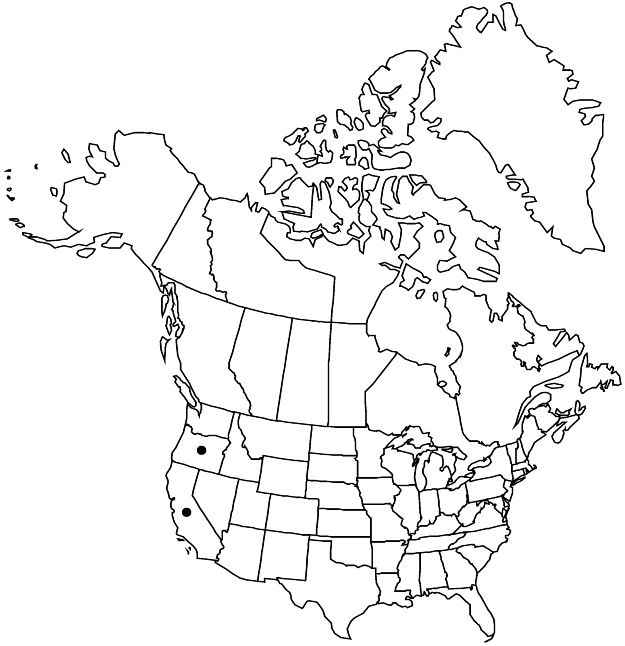Difference between revisions of "Horkelia tridentata var. tridentata"
FNA>Volume Importer |
imported>Volume Importer |
||
| (4 intermediate revisions by 2 users not shown) | |||
| Line 1: | Line 1: | ||
{{Treatment/ID | {{Treatment/ID | ||
|accepted_name=Horkelia tridentata var. tridentata | |accepted_name=Horkelia tridentata var. tridentata | ||
| − | |accepted_authority= | + | |accepted_authority= |
|publications= | |publications= | ||
|basionyms= | |basionyms= | ||
| Line 7: | Line 7: | ||
|name=Potentilla tilingii | |name=Potentilla tilingii | ||
|authority=(Regel) Greene | |authority=(Regel) Greene | ||
| + | |rank=species | ||
}} | }} | ||
|hierarchy=Rosaceae;Rosaceae subfam. Rosoideae;Rosaceae tribe Potentilleae;Horkelia;Horkelia sect. Tridentatae;Horkelia tridentata;Horkelia tridentata var. tridentata | |hierarchy=Rosaceae;Rosaceae subfam. Rosoideae;Rosaceae tribe Potentilleae;Horkelia;Horkelia sect. Tridentatae;Horkelia tridentata;Horkelia tridentata var. tridentata | ||
| Line 22: | Line 23: | ||
|elevation=300–2500 m | |elevation=300–2500 m | ||
|distribution=Calif.;Oreg. | |distribution=Calif.;Oreg. | ||
| − | |discussion=<p>Variety tridentata occurs throughout the Cascade Mountains and Sierra <i>Nevada</i> of California, and barely extends into southern Oregon near Ashland, Josephine County, where the presence of distal cauline glands on some plants indicates possible introgression with <i>Horkelia congesta</i>. A specimen from Glendale, Oregon, (Jones s.n., POM) that was annotated and cited by D. D. Keck (1938) as <i>H. congesta</i> subsp. nemorosa is fully comparable to the Ashland material of < | + | |discussion=<p>Variety tridentata occurs throughout the Cascade Mountains and Sierra <i>Nevada</i> of California, and barely extends into southern Oregon near Ashland, Josephine County, where the presence of distal cauline glands on some plants indicates possible introgression with <i>Horkelia congesta</i>. A specimen from Glendale, Oregon, (Jones s.n., POM) that was annotated and cited by D. D. Keck (1938) as <i>H. congesta</i> subsp. nemorosa is fully comparable to the Ashland material of <i></i>var.<i> tridentata</i>; the apparent disjunction in Douglas County needs to be confirmed.</p> |
|tables= | |tables= | ||
|references= | |references= | ||
| Line 31: | Line 32: | ||
-->{{#Taxon: | -->{{#Taxon: | ||
name=Horkelia tridentata var. tridentata | name=Horkelia tridentata var. tridentata | ||
| − | + | |authority= | |
| − | |authority= | ||
|rank=variety | |rank=variety | ||
|parent rank=species | |parent rank=species | ||
| Line 46: | Line 46: | ||
|publication year= | |publication year= | ||
|special status= | |special status= | ||
| − | |source xml=https:// | + | |source xml=https://bitbucket.org/aafc-mbb/fna-data-curation/src/2e0870ddd59836b60bcf96646a41e87ea5a5943a/coarse_grained_fna_xml/V9/V9_430.xml |
|subfamily=Rosaceae subfam. Rosoideae | |subfamily=Rosaceae subfam. Rosoideae | ||
|tribe=Rosaceae tribe Potentilleae | |tribe=Rosaceae tribe Potentilleae | ||
Latest revision as of 22:56, 5 November 2020
Stems decumbent to nearly erect, 1–4(–7) dm. Inflorescences composed of 1+ 5–40-flowered ± capitate glomerules, these sometimes expanding with age. Flowers 4–9 mm diam.; hypanthium 2–3.5(–5) mm diam., interior glabrous; petals linear to oblanceolate, (1.5–)2–3.5(–4.5) × 0.3–1 mm, usually ± equal to or longer than sepals, apex acute to obtuse; filaments 0.5–1(–2) × 0.1–0.2 mm, anthers 0.2–0.3(–0.4) mm; styles 1–2 mm. Achenes 1.5–2 mm, lightly rugose. 2n = 28.
Phenology: Flowering spring–summer.
Habitat: Open areas, primarily in sagebrush communities and conifer woodlands, mainly on granitic or volcanic soil
Elevation: 300–2500 m
Discussion
Variety tridentata occurs throughout the Cascade Mountains and Sierra Nevada of California, and barely extends into southern Oregon near Ashland, Josephine County, where the presence of distal cauline glands on some plants indicates possible introgression with Horkelia congesta. A specimen from Glendale, Oregon, (Jones s.n., POM) that was annotated and cited by D. D. Keck (1938) as H. congesta subsp. nemorosa is fully comparable to the Ashland material of var. tridentata; the apparent disjunction in Douglas County needs to be confirmed.
Selected References
None.
